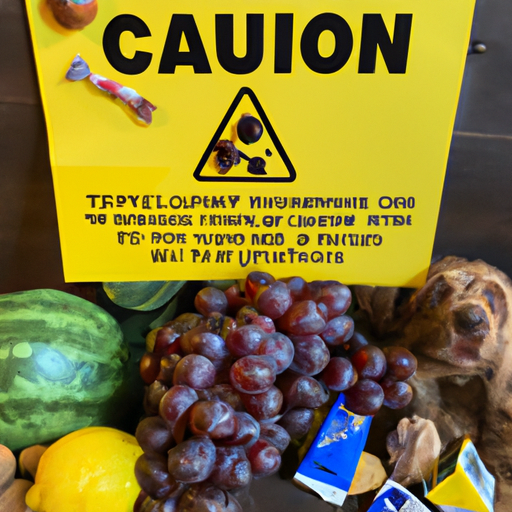As a caregiver for your beloved canine companion, you must be fully aware of the dietary restrictions of dogs. This article will enlighten you about the foods that should never make their way into your dog’s meal plan.
1. Chocolate and Caffeine
Chocolates and caffeine are a big no-no for your furry friends. They contain theobromine and caffeine, which are toxic to dogs. The darker and less sweet the chocolate, the more dangerous it is. Symptoms of poisoning include restlessness, rapid breathing, and seizures.
Chocolate and Caffeine Contents
| Type | Theobromine | Caffeine |
|---|---|---|
| Milk Chocolate | 60mg/oz | 6mg/oz |
| Dark Chocolate | 160mg/oz | 20mg/oz |
| Coffee | – | 95mg/8oz |
2. Grapes and Raisins
Grapes and raisins seem like harmless snacks, but they are extremely toxic to dogs. They can cause sudden kidney failure, even in small amounts. If you suspect your dog has ingested these, seek veterinary help immediately.
3. Onions and Garlic
These common kitchen ingredients are harmful to dogs in any form – raw, cooked, or powder. They can damage your dog’s red blood cells, leading to anemia. Watch out for symptoms like weakness, dullness, and reduced appetite.
4. Xylitol
Xylitol, a sweetener found in many products like gum, candy, and baked goods, can cause a rapid insulin release in dogs, leading to hypoglycemia (low blood sugar). Symptoms include vomiting, loss of coordination, and seizures.
5. Alcohol
Alcohol and foods containing alcohol can cause vomiting, diarrhea, decreased coordination, central nervous system depression, difficulty breathing, and even death in dogs. So, keep your canine companion away from alcohol at all times.
Frequently Asked Questions
Q1: Can dogs eat peanut butter?
A1: Yes, but make sure it does not contain xylitol, a toxic sweetener.
Q2: Are there any safe human foods for dogs?
A2: Yes, dogs can eat foods like carrots, apples, and white rice, in moderation.
Q3: My dog ate something toxic, what should I do?
A3: Immediately contact a veterinarian or a pet-poison helpline.
Remember, your dog’s nutrition is a critical aspect of their overall health and wellness. As a caregiver, it’s your responsibility to ensure they’re getting the right foods and avoiding the harmful ones.



